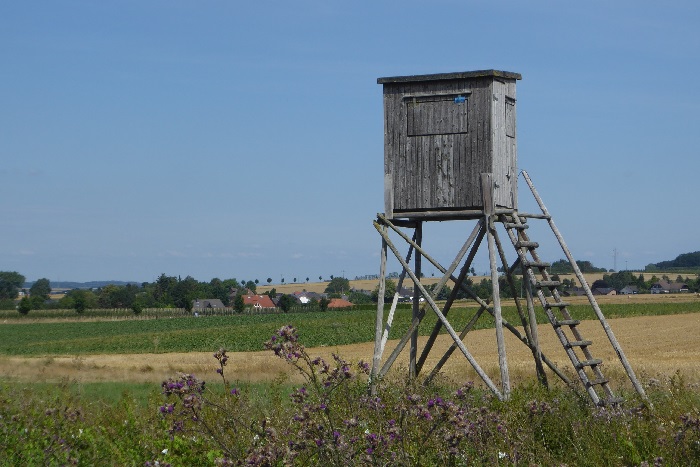A modernised hunting law for Germany?

For many years, the Committee Against Bird Slaughter (CABS) has been committed to campaigning for a more ecologically sustainable hunting law in Germany. We take a critical view of recreational hunting, which remains a common practice in the German countryside. Above all, we consider the widespread hunting of migratory birds and predators, the use of traps, the mass release of non-native huntable species, the feeding of game and the one-sided "care" of huntable species at the expense of a species-rich landscape to be outdated.
As a nature conservation association recognised by the Federal Ministry for the Environment, Nature Conservation and Nuclear Safety, we participate in consultations on amendments to laws at federal and state level. The CABS has formulated minimum requirements for a modern hunting law - here are the "Top 10":
1. no hunting of wild birds
There's no good reason to hunt wild birds. Supplementary feeding of wild geese and a few other species on farmland can hardly be justified in view of Europe-wide overproduction in the agricultural sector. In addition, there is often confusion between huntable and protected and endangered species.
2. protection of predators
The remaining predators such as foxes, martens and birds of prey should absolutely not be targeted simply as unwanted competition. They are a valuable part of the ecosystem and play a decisive role in maintaining a natural and healthy wildlife populations. The hunters' desire for the one-sided "care" of particularly popular hunting prey such as pheasants, hares or partridges cannot be considered a justified reason for pursuing predators.
3. no trap hunt
In Germany tens of thousands of mammals - especially foxes and martens - are still caught and killed with traps every year. The majority of trapping mechanisms are extremely cruel to animals and leads to countless incidents 'accidental' by-catch of protected or non-target species. The use and sale of medieval snap traps, leg-hold traps, hawk traps and other traps must be banned.
4. no game feeding
The feeding of huntable animals impedes natural ecology, leads to genetic degeneration and excessive game populations. This results in damage to agriculture and forestry. A considerable part of artificial hunting impacts could be avoided if the "hunting prey" were not fattened.
5. Shorter hunting periods
During the migratory and resting season of Nordic birds, the breeding season of the native animals, hunting must be completely stopped because of the disturbances associated with it. A regulation as before, which allows hunting every day of the year, is not effective, but only satisfies the needs of recreational hunting.
6. no mass introduction of huntable animal species
In Germany, tens of thousands of captive-bred pheasants and ducks are released each year in order to be subsequently shot. This practice leads to a further artificial shift in ecology, leads to conflict potential with predators and is also morally unacceptable.
7. no hunting with shot and lead
The use of shotgun ammunition should be banned. With each shot hundreds of tiny bullets are fired, which often only injure the animals, but do not instantly kill them. The lead shot also contaminates water and soil and leads to poisoning of wild animals. The same applies to the use of hunting ammunition containing lead.
8. improved hunting supervision
Germany has no functioning state-led hunting supervision! The hunting law provides that the hunters should control the observance of the laws and thus self-regulate themselves. In Germany there is a need for independent hunting authority, who could be provided by forestry authorities or by the state-recognised nature conservation associations, following the Italian model.
9 Hunting-free protected areas
Nature reserves, national parks and reserves protected by international conventions (e.g. EU Birds and Habitats Directives) must offer genuine sanctuary and protection for all wildlife. They must therefore not be authorised hunting at ANY time; as has long been the case in many other European countries. Since in Germany hardly 4% of the land area is protected, it makes sense to establish further hunting-free zones.
10th Hunting Licence Withdrawal for Poaching
In Germany, a hunter who is proven to have deliberately killed a protected species or to have committed a close season offence does not automatically lose their hunting licence. Following a conviction, the lower hunting authority decides whether the hunting licence should be withdrawn or not. We demand that the hunting licence be automatically withdrawn for life in cases of closed season offences or other serious hunting offences.






